
Join us for the 21st Anniversary of the annual EMBL PhD Symposium. Since its
conception in 1999, the EMBL PhD Symposium has evolved into a highly respected
scientific meeting, connecting young researchers and high-profile scientists
alike. This year our Symposium centers on the theme Facing the Future: Challenges and Perspectives of Life Sciences in the 21st century.
In order to present a global picture of the latest challenges and perspectives, in this event we are dedicated to bring together the most outstanding researchers from a broad range of disciplines, that implement highly promising approaches to tackle the current scientific questions as well as the global problems we face as humanity. We will address environmental and global health issues, highlight interdisciplinary approaches as physics and informatics in biology, present innovations in life sciences and raise awareness of the challenges within the scientific community including big data, open access and gender equality.
The meeting aims to showcase exciting and groundbreaking research, from Master's
projects all the way to Nobel Prize winning work. It is an opportunity to meet
the Scientists that currently drive the Science of the Future and to network with the next generation of
scientists. With a broad theme, we hope to encourage many young researchers from
across the sciences to showcase their research, stimulate cross-disciplinary
discussion and meet scientists from diverse backgrounds to share ideas.
Come and join us at the 21st EMBL PhD Symposium, for three
days of exciting and future-oriented science.
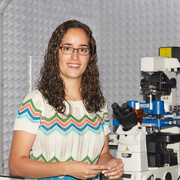 Alba Diz-Muñoz
Alba Diz-Muñoz
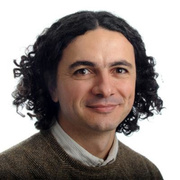 Albert Cardona
Albert Cardona
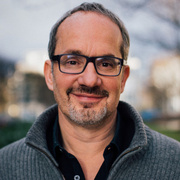 Anthony Hyman
Anthony Hyman
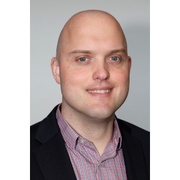 Charles Pence
Charles Pence
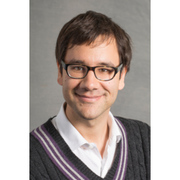 Christophe Dessimoz
Christophe Dessimoz
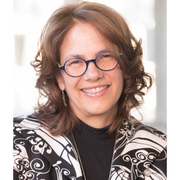 Françoise Baylis
Françoise Baylis
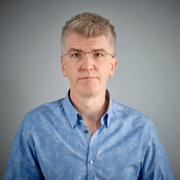 James Briscoe
James Briscoe
 Jannie Borst
Jannie Borst
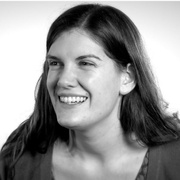 Jenny Molloy
Jenny Molloy
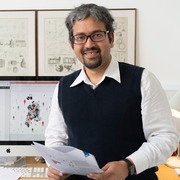 Madan Babu
Madan Babu
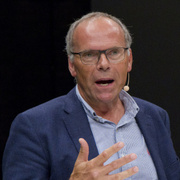 Mark Post
Mark Post
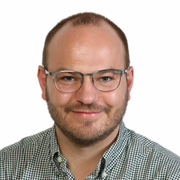 Michael Zimmermann
Michael Zimmermann
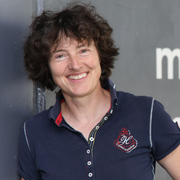 Petra Schwille
Petra Schwille
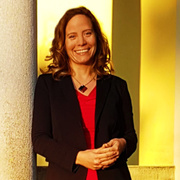 Silvia Marchesan
Silvia Marchesan
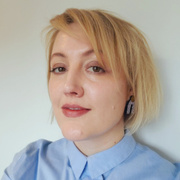 Tempest van Schaik
Tempest van Schaik
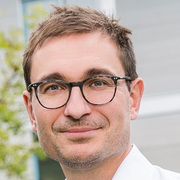 Tobias Erb
Tobias Erb
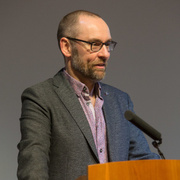 Tony Wood
Tony Wood
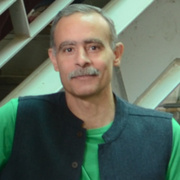 Upinder Bhalla
Upinder Bhalla
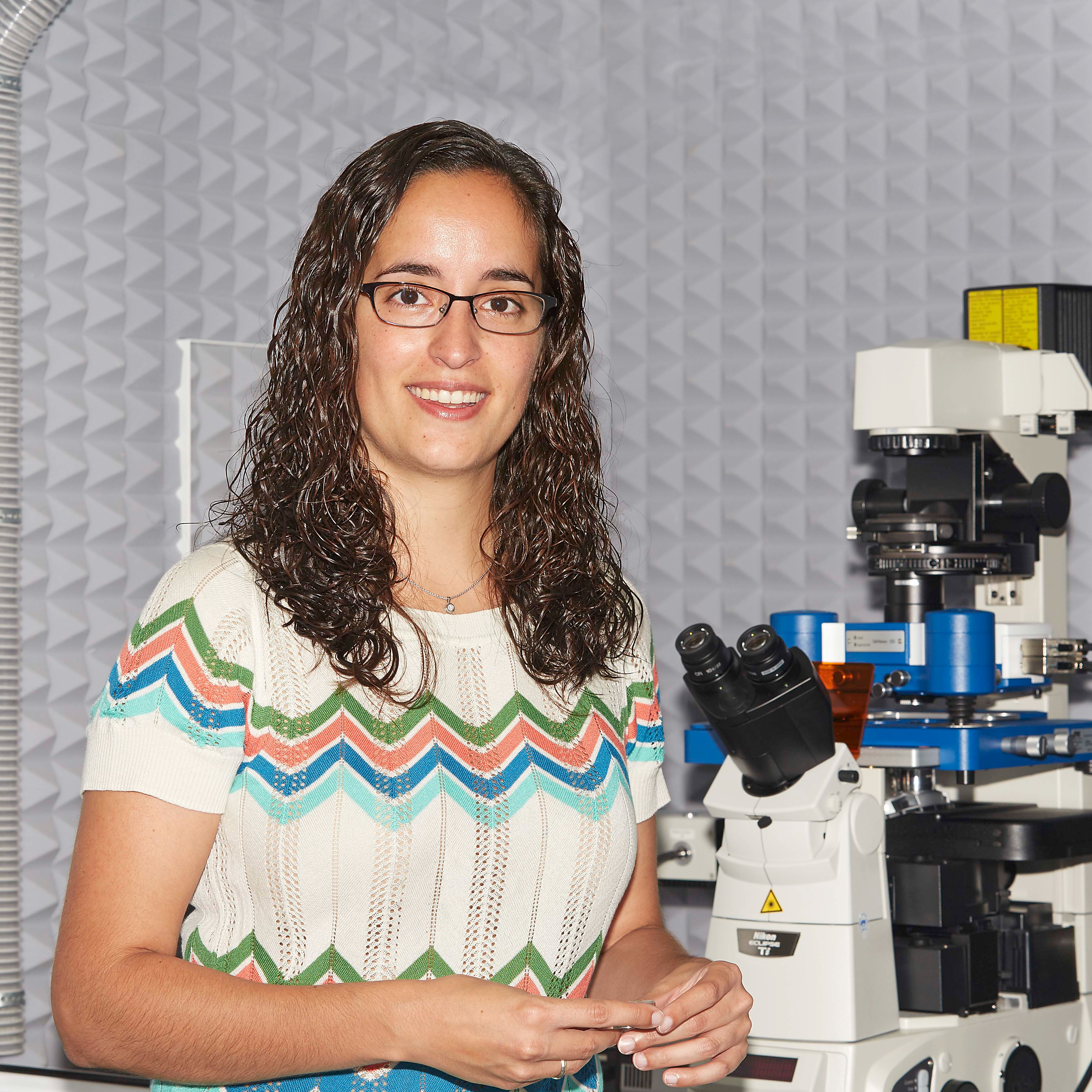
European Molecular Biology Laboratory, Cell Biology and Biophysics Unit
Dr. Alba Diz-Muñoz is Group Leader at the Cell Biology and Biophysics Unit of the European Molecular Biology Laboratory (EMBL) in Heidelberg, Germany. She completed her PhD in 2011 at the Max Planck Institute of Molecular Cell Biology and Genetics in Dresden, in the laboratories of Ewa Paluch and Carl-Phillip Heisenberg. There, Alba investigated the differential role of blebs and lamellipodia for cell migration during zebrafish gastrulation. In 2012, Alba moved to San Francisco, USA, to be a postdoctoral fellow in the laboratories of Orion Weiner at UCSF and Dan Fletcher at UCBerkeley. There, she identified a signalling cascade that is activated by changes in membrane tension and demonstrated its role for polarity, motility, and membrane tension homeostasis. In 2016, Alba started her own research group in the Cell Biology and Biophysics Unit at the European Molecular Biology Laboratory, Heidelberg. The Diz-Muñoz group studies the crosstalk between mechanical properties and cellular signalling cascades that drive morphogenesis and fate specification in immune cells, embryonic stem cells and zebrafish embryos.
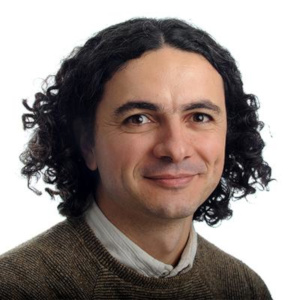
HHMI Janelia
Albert Cardona graduated in Biology from the University of Barcelona in 2000, and completed his PhD in Developmental Biology at the same University in 2005. After a brief stint as a software engineer at the Institute of Neuroinformatics in Zurich, Cardona joined the lab of Volker Hartenstein at UCLA as a postdoc, where he started his work on anatomy of Drosophila larval brains. In 2008 he returned to the Institute of Neuroinformatics in Zurich as a group leader, while simultaneously being a visiting scientist at HHMI Janelia. During this time he imaged imaged with serial transmission electron microscopy a chunk of the larval nerve cord and reconstructed its circuits with his software TrakEM2, and initiated the development of the CATMAID software for the collaborative reconstruction and analysis of neural circuits. In 2012 he joined HHMI Janelia as a group leader and worked towards the collaborative mapping of the complete central nervous system of the fly larva. His lab work focused on many areas, with emphasis on olfactory processing and learning and memory.
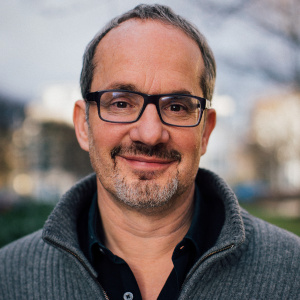
EMBO Keynote Lecture
Max Planck Institute of Molecular Cell Biology and Genetics
Prof. Dr. Anthony Hyman is Director and Group Leader at the MPI-CBG. He was born May 27, 1962 in Haifa, Israel and is a citizen of the UK. In 1984, he received his BSc first class in Zoology from UCL, where he worked as research Assistant in 1981. From 1985-1987 he wrote his PhD on “The establishment of division axes in early C.elegans embryos” under the supervision of Dr. John White at MRC in Cambridge. From 1988-1992 he carried out his postdoctoral research in the lab of Prof. Tim Mitchison at UCSF, investigating the mechanism of chromosome movement with in vitro approaches. As a postdoc, he was a Lucille P. Markey Senior Fellow (1991-1992). In 1993, he became a Group Leader at EMBL Heidelberg, before he moved to Dresden in 1999 as one of the founding directors of the MPI-CBG, where he was Managing Director from 2010-2013. He has been a member of ASCB since 1996 and EMBO since 2000. In 2002, he was named honorary Professor of Molecular Cell Biology at the Technical University Dresden. He was awarded the EMBO Gold Medal in 2003, and he was elected as a Fellow of the Royal Society in 2007. In 2011, Dr. Hyman was awarded the Gottfried Wilhelm Leibniz Prize and the Schleiden Medal from the German National Academy of Sciences Leopoldina in 2017.
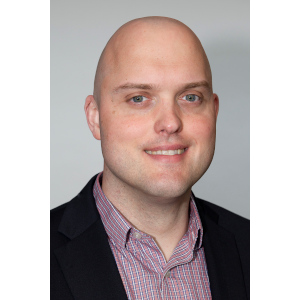
Université Catholique de Louvain
Charles Pence is Chargé de cours and Director of the Centre de philosophie des sciences et sociétés at the Université catholique de Louvain, Louvain-la-Neuve, Belgium. His work focuses on the philosophy and history of evolutionary biology, as well as the ethics of contemporary technology. His group is also a leader in the application of digital humanities tools to the study of the life sciences. His current work explores the past, present, and future of the concept of chance and the tools of statistics in biology.
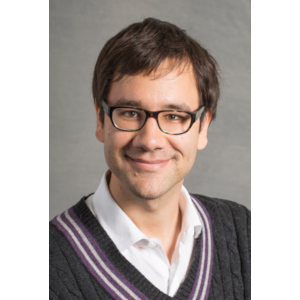
EMBO Young Investigator Lecture
University of Lausanne
Christophe obtained his Master in Biology (2003) and PhD in Computer Science (2009) from ETH Zurich, Switzerland. After a postdoc at the European Bioinformatics Institute near Cambridge (UK), he joined University College London as lecturer (2013), then Reader (2015). In 2015, he joined the University of Lausanne as SNSF professor, retaining an appointment at UCL, where part of his lab remains active. Since 2016, Christophe is also a group leader at the Swiss Institute of Bioinformatics. At the interface between biology and computer science, Christophe’s lab seeks to better understand evolutionary and functional relationships between genes, genomes, and species.
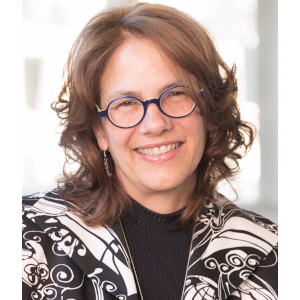
EMBO Science Policy Lecture
Dalhousie University
Françoise Baylis, PhD is University Research Professor at Dalhousie University. She is a member of the Order of Canada and the Order of Nova Scotia, as well as a fellow of the Royal Society of Canada and of the Canadian Academy of Health Sciences. Baylis was one of the organizers of, and a key participant in, the 2015 International Summit on Human Gene Editing. She is a member of the WHO expert advisory committee on Developing global standards for governance and oversight of Human Genome editing. Her forthcoming book is Altered Inheritance: CRISPR and the Ethics of Human Genome Editing (Harvard University Press, 2019)
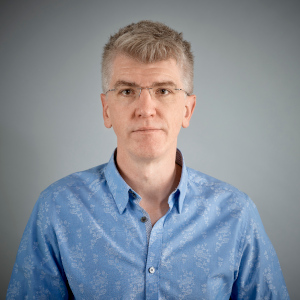
The Francis Crick Institute
James Briscoe is a senior group leader at The Francis Crick Institute. He obtained a B.Sc. in Microbiology and Virology from the University of Warwick, UK. Following a PhD in Ian Kerr’s laboratory at the Imperial Cancer Research Fund, London (now part of The Francis Crick Institute), he undertook postdoctoral training at Columbia University, New York, USA, with Thomas Jessell. In 2000 he moved to the MRC-National Institute for Medical Research (now part of The Francis Crick Institute) to establish his own research group and in 2001 he was elected an EMBO Young Investigator. He was awarded the EMBO Gold Medal in 2008 and elected to EMBO in 2009. In 2012 he was appointed Head of Division in Developmental Biology. He serves on several editorial boards and is Editor-in-Chief of Development. His research interests include the molecular and cellular mechanisms of graded signalling by morphogens and the specification of cell fate in the vertebrate neural tube. To address these questions his lab uses a range of experimental and computational techniques and model systems that include mouse and chick embryos and embryonic stem cells.

Leiden University Medical School
Jannie Borst has a Master degree in Biology with Chemistry and a PhD degree in Medicine (1985) from Leiden University. She did her PhD work at Harvard Medical School and continued her career at the Netherlands Cancer Institute where has been group leader since 1987 and department head from 2002 to 2019. She is professor in Experimental Oncology at the University of Amsterdam and professor in Immunology at Leiden University. In 2019, she has become the head of the Department of Immunohematology and Blood Transfusion at Leiden University Medical School. Her research focus is on costimulatory receptors and their associated gene expression programs that regulate T cell function. She also works in the field of cell death and immunity. In collaboration with dr. Hans van Eenennaam of Aduro Biotech Europe, she has helped to develop a new immunotherapeutic drug against cancer that is now in clinical testing.
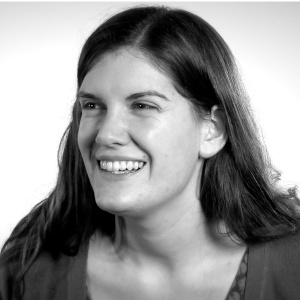
University of Cambridge
Dr Jenny Molloy is a Shuttleworth Fellow at the University of Cambridge, studying the role and impact of open approaches to intellectual property for a sustainable and equitable bioeconomy. In particular she researches the potential for local, distributed manufacturing of enzymes to improve access and build capacity for biological research. This work combines technical development using synthetic biology-based platform technologies with qualitative research on challenges faces by molecular biologists globally through interviews and case studies. In addition to her research, Jenny is a founding Director of Biomakespace, a community laboratory for engineering with biology, and she co-organises the international Gathering for Open Science Hardware.
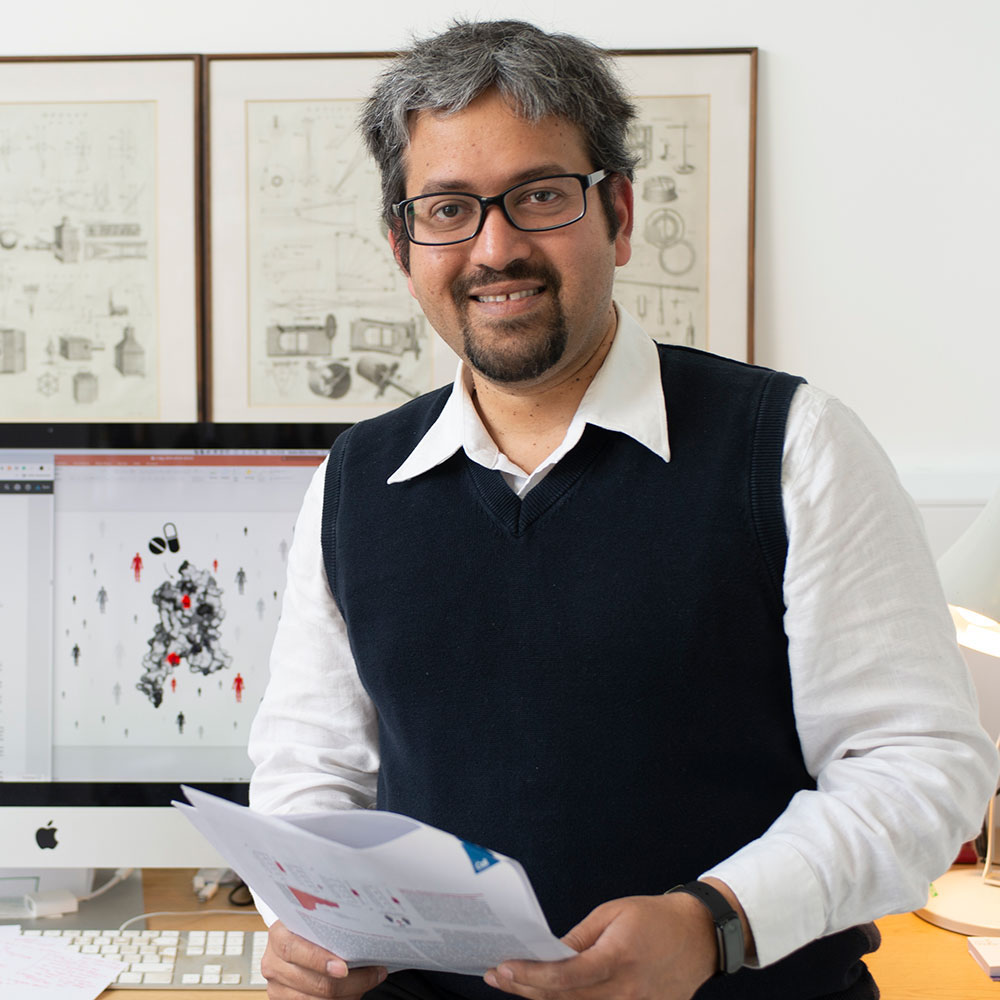
MRC, UK
M. Madan Babu heads the Regulatory Genomics and Systems Biology group at the MRC Laboratory of Molecular Biology in Cambridge, UK. His group uses data science approach to investigate how regulation is achieved at multiple levels of complexity in cellular systems with an emphasis on intrinsically disordered proteins and G protein coupled receptors. The work from his group has been recognized by several awards from various learned societies. Most recently, he received the Francis Crick Medal (2015) from the Royal Society, the inaugural Blavatnik Life Sciences Laureate (2018) and the EMBO Gold Medal (2019). He is an elected member of EMBO (2016) and a Fellow of the Royal Society of Chemistry (2017).
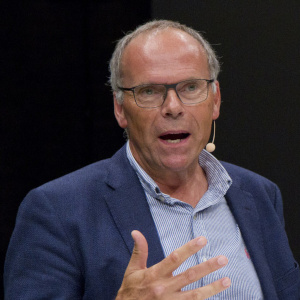
Maastricht University, MosaMeat
Prof. Mark Post is MD, PhD and chair of Physiology at Maastricht University, after positions at Utrecht, Harvard, Dartmouth and TU/e. He engineers tissues for medicine and for food. He presented the world’s first hamburger from cultured beef in August 2013. He is CSO of MosaMeat, Qorium and CEO of Cell2Tissue, companies that commercialize animal and human products from stem cells.
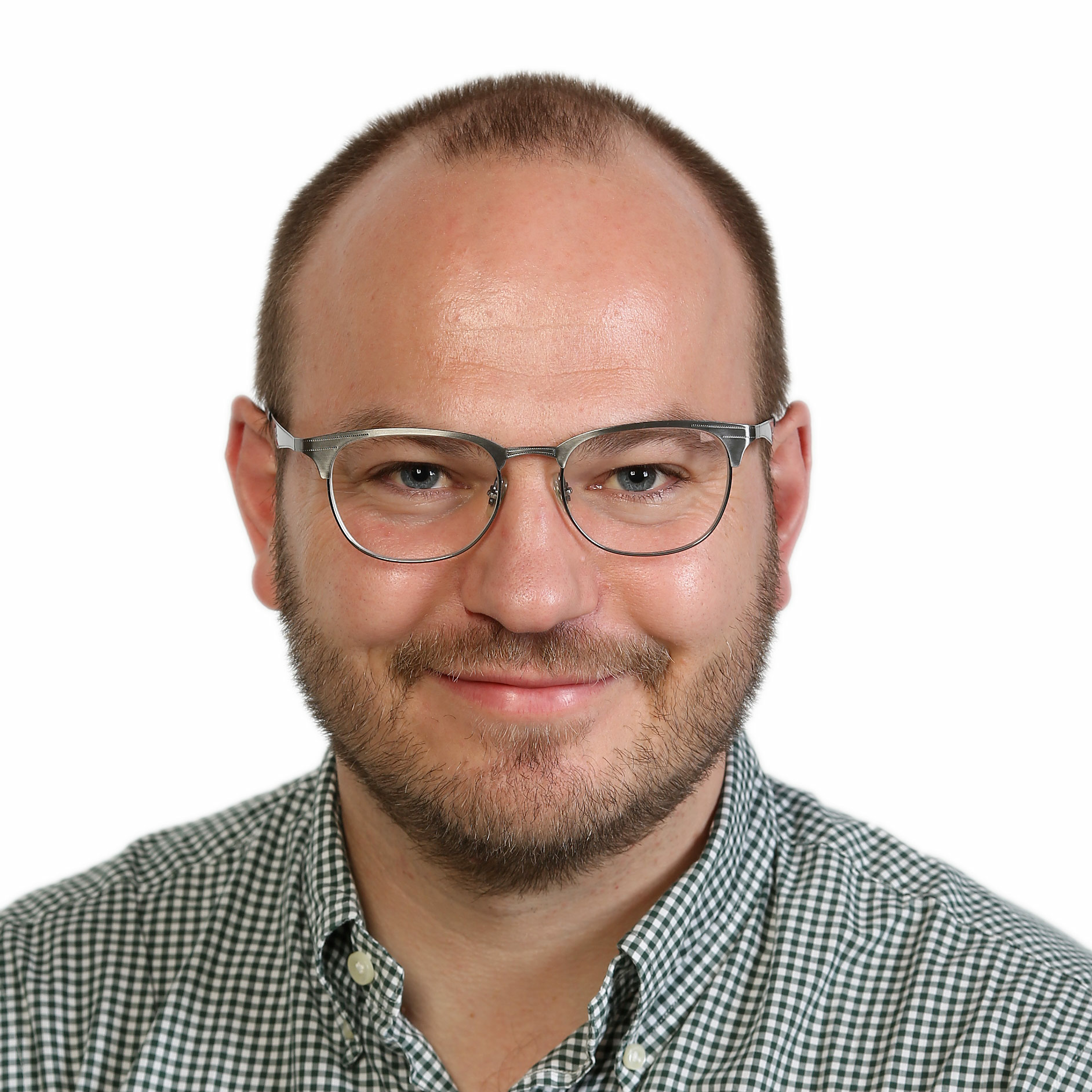
EMBL Heidelberg
Michael Zimmermann is a group leader at EMBL in Heidelberg. Michael received a Bachelor’s degree in Pharmaceutical Sciences from Basel University and a Master’s degree in Biotechnology from the Ecole Supérieure de Biotechnologie in Strasbourg. He performed his Ph.D. work with Uwe Sauer at ETH Zurich, where he developed metabolomics and Systems Biology approaches to study microbial metabolism in the context of host-pathogen interactions. For his postdoctoral training, Michael joined Andrew Goodman’s group at Yale University to study the molecular mechanisms of host-microbiome interactions. Michael’s most recent research investigates how the human gut microbiome contributes to drug metabolism, which can result in interpersonal variation of patients’ drug response and toxicity. His group employs bacterial genetics, metabolomics, gnotobiotic mouse work, and mathematical modeling to systematically map microbial drug transformations and to quantitatively separate microbial and host drug metabolism in vivo.
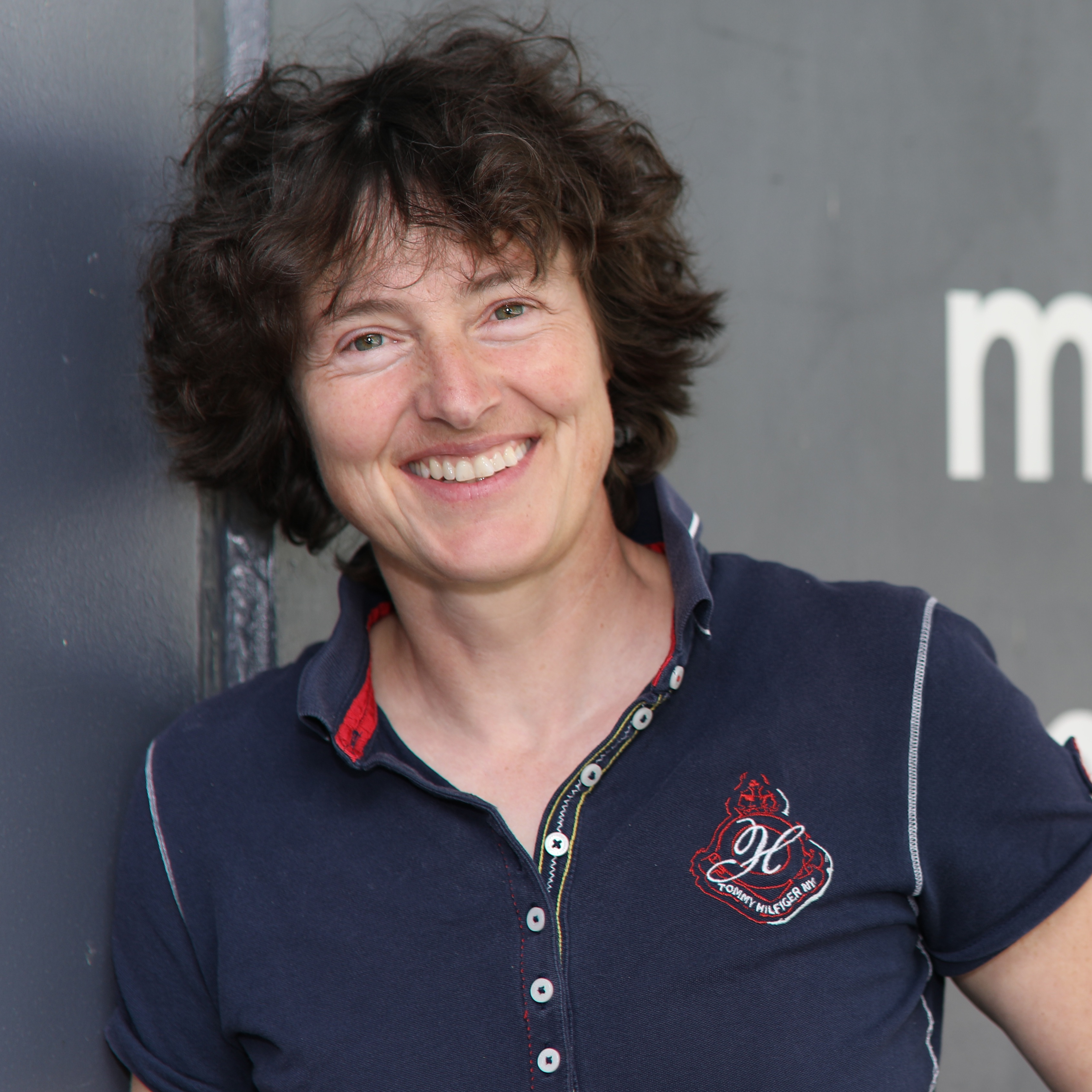
Max Planck Institute of Biochemistry
Petra Schwille obtained her PhD in 1996 in the group of Manfred Eigen at the MPI for Biophysical Chemistry in Göttingen. After a postdoctoral stay at Cornell University (Ithaca, NY) she established a research group at the MPI Göttingen in 1999 and accepted a professorship and chair of biophysics at the BIOTEC of the TU Dresden in 2002. In 2011, she was appointed scientific member of the Max Planck Society and Director at the MPI of Biochemistry, Martinsried. Her research interests range from single‐molecule biophysics to bottom‐up synthetic biology of artificial cells.
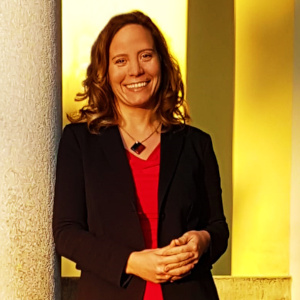
University of Trieste
Silvia Marchesan completed her PhD on the bio-orthogonal modification of glycoproteins at The University of Edinburgh (2008). Until 2010 she worked as Academy of Finland research fellow on integrin-mediated cell adhesion pathways. Until 2012 she worked on biomaterials, as joint fellow between Australia’s science agency (CSIRO) and Monash University. After maternity leave, she joined the University of Trieste (Italy) as Assistant (2015), then Associate (2018) Professor of chemistry. In 2017 she obtained the Erspamer Medal for her research on self-assembling peptides. In 2018 Nature Index listed her amongst the top-eleven Rising Stars in the natural sciences worldwide for the multidisciplinary research. She leads the Superstructures Labs where nanotechnology is used to develop biomaterials and new solutions at the interface between chemistry, biology, and materials science.
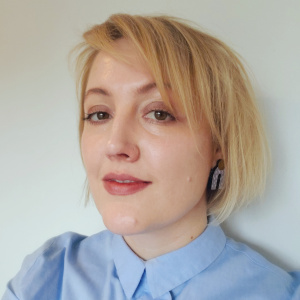
EMBO Women in Science Lecture
Microsoft, London
Dr Tempest van Schaik is a multi-disciplinary engineer & inventor who’s developed creative solutions to problems in fields as diverse as healthcare, ocean science and agriculture. She has led the end-to-end development of new technology: from scientific research at the lab bench to user-centred products; from ultra-low cost sensors to hi-tech implantables, wearables and apps. She currently works as a machine learning engineer at Microsoft, London, focusing on healthcare & biosciences. She has a PhD in Bioengineering from Imperial College London with a lab placement at MIT, has spoken at TEDx and SXSW, is a grant recipient from Innovate UK and the US National Academies, and a Microsoft Ambassador for Diversity & Inclusion.
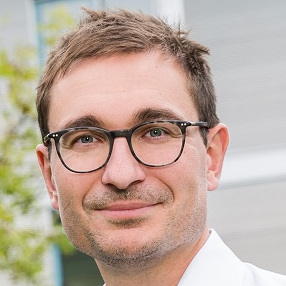
Max Plack Institute for terrestrial microbiology
Tobias J. Erb is a microbial biochemist and Director at the Max Planck Institute for terrestrial Microbiology in Marburg, Germany. His research centers on the discovery, the function and the design of novel CO2 converting enzymes from microorganisms, algae and plants and their use in engineered and artificial photosynthesis as well as synthetic chloroplasts and cells. Tobi studied Chemistry and Biology and did his PhD at the University of Freiburg (Germany) and the Ohio State University. After a postdoc at the University of Illinois, he headed a Junior Group at ETH Zürich (Switzerland) before he became a Group Leader at the Max Planck Institute in Marburg, where he was promoted to Director in 2017. Tobi’s work received numerous awards, among them the Heinz Maier-Leibnitz Prize in 2016, the VAAM research award in 2017, and the Otto Bayer Award in 2018. He was named as one of 12 up- and coming scientists by C&EN of the American Chemical Society in 2015 and elected to the Young Academy at the National Academy of Science in 2013.
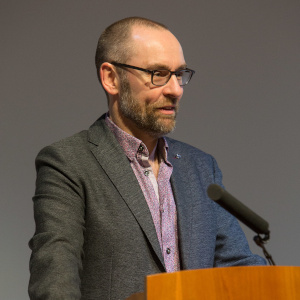
Dr Tony Wood
GlaxoSmithKline
Tony Wood is Senior Vice President and Head of Medicinal Science and Technology at GlaxoSmithKline. He has a BSc in chemistry and a PhD in organic synthesis from Newcastle University. After a postdoc at Imperial College, he spent 25 years with Pfizer in the UK and the US, before moving to his current role at GSK in 2017. He is one of the world’s pre-eminent medicinal chemists, and has the rare distinction of inventing a licensed medicine, the HIV antiviral maraviroc (Celsentri/Selzentry). This was the first mammalian host protein-targeted anti-HIV drug to reach the market. As well as being a pioneer of structure-based drug design to overcome problems of resistance, he has striven to advance strategies in medicinal chemistry design, including ligand efficiency and lipophilic efficiency, structural-property relationships for toxicity, and the use of chemoinformatics to inform molecule and library design. Dr Wood has received several awards for maraviroc, including the PhRMA Discoverers Award, the Prix Galien USA and the ACS Heroes of Chemistry Award. He was also the recipient of the 2005 Malcolm Campbell Award for Medicinal Chemistry from the Royal Society of Chemistry, and the 2010 UCB Ehrlich Award for Medicinal Chemistry from the European Federation of Medicinal Chemistry.
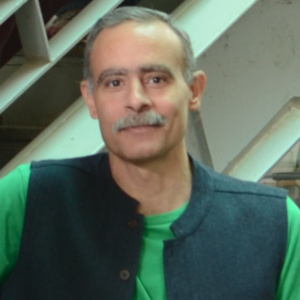
National Centre for Biological Sciences
I trained in Physics, but found biological computation fascinating and joined Caltech for my PhD, just when they had begun their pioneering computational neuroscience programme. I've done both experiments and modelling throughout my career. I became interested in the computational capabilities of cellular signaling pathways, and worked on this for my postdoc at Mount Sinai in New York. I started my lab in the National Centre for Biological Sciences, Bangalore, in 1996 and have been there ever since. I continue to investigate how subcellular signaling, both electrical and chemical, contribute to neural computation. Current interests include stimulus sequence recognition, novelty detection, and memory.
| 08:00 - 09:00 | Registration |
| 09:00 - 09:25 | Symposium Opening & Welcome |
| 09:25 - 09:30 | Chair: Sumanjit Datta |
| 09:30 - 10:20 | Keynote Lecture: Silvia Marchesan Nanotechnology for new frontiers in the life sciences |
| 10:20 - 11:00 | Lecture: Albert Cardona The wiring diagram of an insect brain |
| 11:00 - 11:20 | Coffee Break |
| 11:20 - 12:05 | Lecture: M. Madan Babu Data Science Approaches to Biological Systems |
| 12:05 - 12:15 | Short Talk: Al-Eryani Ghamdan Developing and applying high-throughput single-cell RNA full length sequencing to dissect cellular heterogeneity in disease |
| 12:15 - 12:25 | Flash Talks Beatrice Chiew, Daniel Tan Chun Sin, Reint Gana | 12:25 - 13:15 | Lunch |
| 13:15 - 14:00 | Lecture: Tony Wood Science and Technology Challenges in Modern Drug Discovery and Development |
| 14:00 - 14:05 | Chair: Alberto Hernández Armendáriz |
| 14:05 - 14:45 | Lecture: Alba Diz-Muñoz Cell and ECM mechanics for pluripotency and survival |
| 14:45 - 14:55 | Short Talk: Karen SoansInvestigating cell-matrix interplay during collective cell migration in vivo |
| 14:55 - 15:05 | Short Talk: Alena KucerovaSqueeze me: Principles of efficient molecule delivery into cells by a microfluidic device |
| 15:05 - 15:30 | Coffee Break |
| 15:30 - 16:20 | EMBO Keynote Lecture: Anthony Hyman Biomolecular Condensates and their Implications for Physiology and Disease |
| 16:20 - 16:30 | Flash Talks: Helena Raymond-Hayling, Anna Jungblut, Tim Dullweber |
| 16:30 - 17:30 | Workshops (see Details) |
| 17:30 - 19:00 | Poster Session |
| 19:00 - 20:00 | Dinner |
| 20:00 - 22:00 | Evening Programme: Tour of Heidelberg and Pub visit |
| 09:00 - 09:05 | Chair: Valentyna Zinchenko |
| 09:05 - 09:55 | Keynote Lecture: Upinder Bhalla Data, tools, and models to understand synaptic computation |
| 09:55 - 10:35 | EMBO Young Investigator Lecture: Christophe Dessimoz Big Data: Opportunities, challenges and some solutions |
| 10:35 - 10:45 | Short Talk: Julian Regalado Deep Autoencoders for Sequence Similarity Exploration |
| 10:45 - 11:15 | Coffee Break |
| 11:15 - 11:55 | EMBO Women in Science Lecture: Tempest van Schaik Machine learning in healthcare |
| 11:55 - 12:05 | Short Talk: Edgar Garriga The Regressive Algorithm. An Accurate and Efficient Alternative to the Progressive Algorithm |
| 12:05 - 12:15 | Flash Talks: Alistair Dunham, Bruno Iochins Grisci, Mehmood Arfa |
| 12:15 - 13:15 | Lunch |
| 13:15 - 14:00 | Lecture: Charles Pence The challenge of breadth: Stories from Darwin to tomorrow |
| 14:00 - 14:05 | Chair: Jesus Alvarado Valverde |
| 14:05 - 14:55 | Keynote Lecture: Petra Schwille What does it take to build a Cell |
| 14:55 - 15:05 | Short Talk: Benjamin DoffekFrom the farm to the pharm |
| 15:05 - 15:45 | Lecture: Jenny Molloy Synthetic biology as a platform to increase global access to molecular tools |
| 15:45 - 16:15 | Coffee Break & Round Table |
| 16:15 - 16:55 | Lecture: James Briscoe The cellular and molecular Logic of Spinal Cord Development |
| 16:55 - 17:05 | Short Talk: Short talk: Lukas Weilguny Reconstructing the invasion route of DNA transposons using extant population samples |
| 17:05 - 17:15 | Flash Talks: Karolina Spustova, Martina Varisco, Paula Weidemüller |
| 17:15 - 19:00 | Poster Session |
| 19:00 - 20:00 | Dinner |
| 20:00 - 22:00 | Evening Programme: Pub Quiz |
| 10:00 - 10:05 | Chair: Anna Mathioudaki |
| 10:05 - 10:55 | Lecture: Jannie Borst Origins and future of cancer immunotherapy |
| 10:55 - 11:05 | Short Talk: Ireshyn Govender Novel urinary proteome profiling methods applied in an exploratory case-control cohort of HIV patients in South Africa |
| 11:05 - 11:15 | Short Talk: Vaheesan Rajabal Role of res hunter transposons in the global spread of antimicrobial resistance |
| 11:15 - 11:55 | Lecture: Michael ZimmermannDrug metabolic interactions between the gut microbiome and its host |
| 11:55 - 12:05 | Short Talk: Elisa Nerli Neurogenesis initiation is independent of nuclear positioning in the vertebrate retinal neuroepithelium |
| 12:05 - 13:15 | Lunch |
| 13:15 - 14:00 | EMBO Science Policy Lecture: Francoise Baylis Heritable Human Genome Editing: Scientist and Science Policy |
| 14:00 - 14:05 | Chair: Elisa Kreibich |
| 14:05 - 14:55 | Keynote Lecture: Tobias Erb Fixing CO2-fixation - Re-thinking photosynthesis with synthetic biology |
| 14:55 - 15:05 | Short Talk: V M Malathi Field-evolved resistance to insecticides in the brown planthopper, Nilaparvata lugens (Stål): connexion of multiple resistance mechanisms |
| 15:05 - 15:15 | Short Talk: Sarah E Aamidor “Stranger things” Sex mosaics in the honeybee: how haplodiploidy makes possible the evolution of novel forms of reproduction |
| 15:15 - 15:45 | Coffee Break |
| 15:45 - 16:25 | Lecture: Mark Post Using Medical Technology to make Hamburgers |
| 16:25 - 16:50 | Short Lecture: Alejandro Andres Murillo Cordova Biotic and abiotic interactions of the planktonic community in a changing ocean |
| 16:50 - 17:00 | Short Break |
| 17:00 - 18:15 |
Panel Discussion Publishing now and in the future Jan Korbel (EMBL Heidelberg) Thomas Lemberger (EMBO Press) Françoise Baylis (Dalhousie University) Charles Pence (Université Catholique de Louvain) (see Details) |
| 18:15 - 18:30 | Awards and Thank you's |
| 18:30 - 20:00 | Dinner |
| 20:00 - 02:00 | Symposium Party |
Heidelberg is easily reached by train, car or plane from any country in the world. The EMBL campus is located in the neighbourhood area of Boxberg which is approximately 10 minutes by car from Heidelberg's city centre.
Reaching us by train, plane, or car.Prior to travelling to Germany, some applicants from certain countries may have to acquire special travel documents, such as a visa. Applicants are strongly encouraged to check with the local German Authorities (Embassies or Consulates) about the need for special travelling documents. Since the process may be time consuming, applicants are advised to make such arrangements as soon as possible. Failure to obtain a visa after the deadline for participation in the conference will not result in a refund. Applicants are responsible for providing the right documentation needed for their entry into Germany. However, upon request, the Organising Committee can issue a formal letter of acceptance to the symposium for the purposes of obtaining a visa. Please be aware that no visa letters will be issued before payment of the registration fee. The organising committee can not be held responsible in the case of a refusal by German authorities to enter German territory.
The registration fee does not include accommodation, which has to be
personally arranged. Buses to EMBL from Heidelberg downtown will be provided during the symposium.
There are a number of options for obtaining a travel grant:
Please note that you need to apply independently to these grants.
If you require any assistance please do not hesitate to contact the
Symposium Organisers.
| Deadline | ||
|---|---|---|
| Registration: | October 17th | |
| Abstract submission / EMBL Fellowship application: | September 16th | |
| Short talk and Fellowship selection: | September 26th |
Note: Abstracts for Posters can be submitted until the registration deadline.
| Fee | Registration | |
|---|---|---|
| General | 170€ | Deadline passed |
| Industry | 220€ | Deadline passed |
| Press | Deadline passed | |
| EMBL Staff (including new EMBL PhD Students) | Register |
Note: Late registration is still possible. If you are interested in attending the Symposium, please contact George Luca-Ruse.
Please note, payment is by credit card only. It is possible to pay later but registration is only complete and confirmed after paying the registration fee by October 17th 2019. If you experience any issues with payment, please contact the Symposium Organisers.
To submit an abstract for the Symposium, please register for the conference.
Upon registering, you will receive an email providing you with a link to
submit an abstract and apply for a travel grant. Please provide your abstract
for the conference by 16th September 2019.
We encourage all participants to submit an abstract: all those who do, have
the opportunity to present their work as a scientific poster or in a short talk.
The Symposium offers the opportunity to present your work to an international
audience and last year we received submissions on a range of topics,
including Bachelor’s theses, Master’s Projects and PhD work.
To receive updates about the Symposium subscribe below.
The EMBL PhD symposium will provide an invaluable networking environment for your company to enhance the profile amongst the molecular biosciences research community, especially towards the young generation. The symposium will offer prime opportunities for your company to promote your new products, latest technology, and services. If you are interested in sponsoring our symposium and would like to have more information, direct your enquires to us.
We teamed up with Graduate schools all around Europe in order to cover the registration and travel costs for one or more of their students.